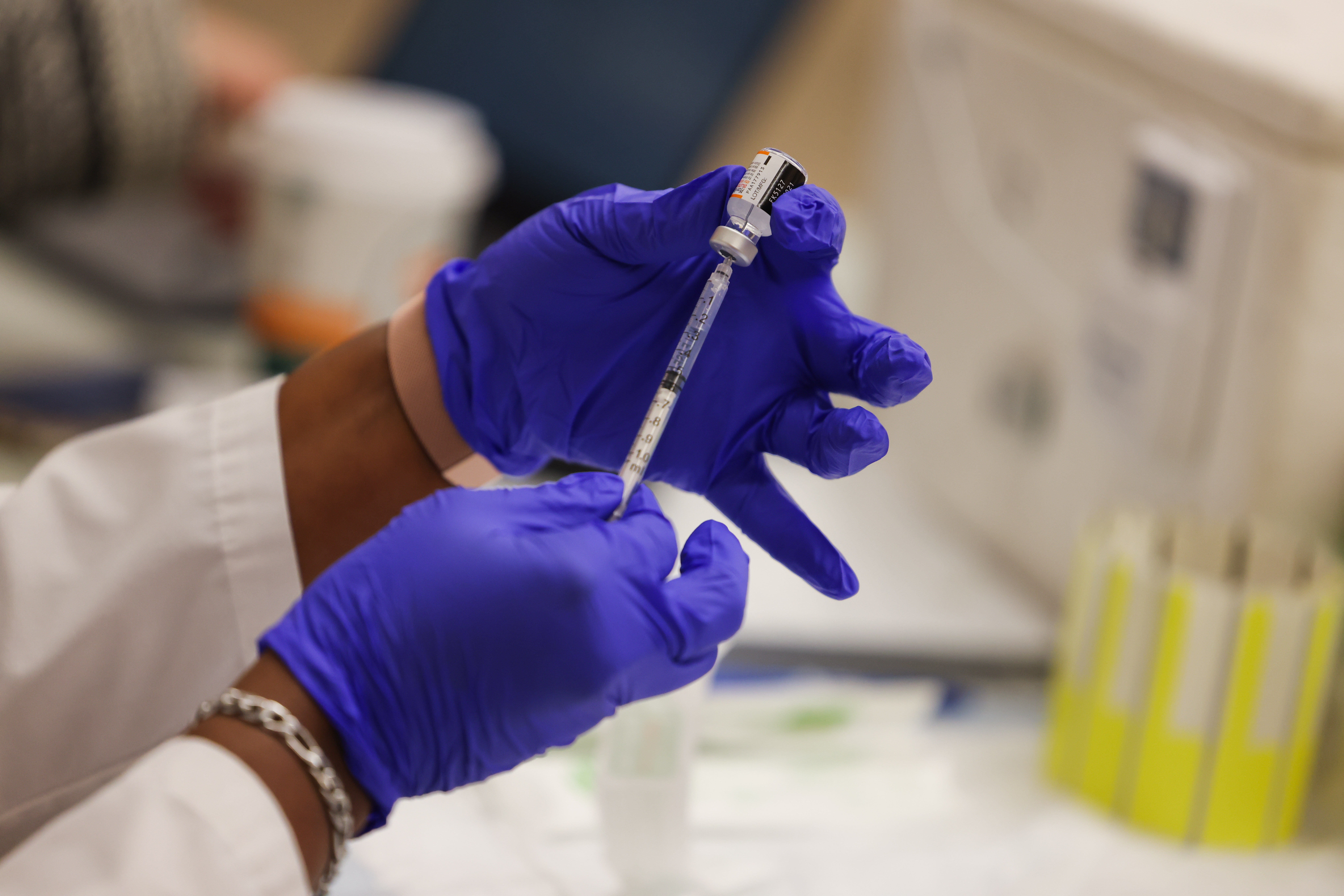As the U.S. battles the rapidly spreading BA.5 omicron subvariant, a new mutant that could compete with the highly contagious strain is on the horizon.
Scientists say the variant – called BA.2.75 – may be able to evade immunity from vaccines and prior infection. The latest mutant has been spotted in several distant states in India and appears to be spreading faster than other variants there. It’s unclear whether it could cause more serious disease than other omicron variants, including the prominent BA.5.
WATCH ANYTIME FOR FREE
Stream NBC10 Boston news for free, 24/7, wherever you are. |
Tufts Medical Center's Dr. Shira Doron, Boston Medical Center's Dr. Sabrina Assoumou and Brigham and Women's Hospital's Dr. Daniel Kuritzkes explained whether we should worry about the new variant during NBC10 Boston's latest "COVID Q&A" discussion.
More from this series
Get updates on what's happening in Boston to your inbox. Sign up for our News Headlines newsletter.
Experts say the transmission rates of the BA.2.75 variant are showing an exponential increase, particularly in India. It makes up about a quarter of the cases there and seems to be competing with BA.5 as the dominant strain. Some health officials expect cases will continue to grow, but how the subvariant might impact the U.S. remains to be seen.
"We often look to see what happens overseas to try to foreshadow what is going to happen here. These particular subvariants have had very different behaviors," Assoumou said. "There's been a different mix of infection-acquired immunity versus vaccine-acquired immunity, so it's a little hard to know how it's going to behave here in the U.S."
Get updates on what's happening in Boston to your inbox. Sign up for our News Headlines newsletter.
The population in India has a different immunity than those in the U.S., Boston doctors said, because different vaccines were given at various times and different variants circulated at various times. Those variables result in fluctuating levels of infection-induced immunity.
"We cannot assume that what's happening there will happen here, and yet we do have to prepare for surges. We are always now preparing for surges," Doron said. "Variants will emerge that evade immunity from the vaccine and prior infection, and we can't ever quite know exactly what they're going to do to our case rates until we get there."
The highly contagious BA.5 omicron subvariant has taken over as the dominant coronavirus strain in recent weeks and is fueling concerns about a potential summer surge. The threat of the BA.2.75 variant in India underscores the importance of global vaccination, according to Assoumou, who said, "We're not going to be able to get over this pandemic if we don't make sure that everyone, everywhere, is safe."
Moderna recently announced that it is developing two potential booster shots targeting the omicron subvariants, the Wall Street Journal reported, which could be rolled out by the fall. But Doron questioned whether variant-specific vaccines are a sufficient long-term solution, considering a new variant could always be lurking around the corner.
"It's the same story. It could be a problem, and it could not be a problem," Doron said of BA.2.75. "We can watch what a variant or some variant does in another country. We should always prepare for it to do that thing here. You know, it's expect the worst and hope for the best. That's all we can do. It's going to be impossible to predict. And how it behaves in one place may not predict how it behaves in another."
"I agree," Kuritzkes said. "We'll have to watch and see what happens -- whether this new variant really spreads significantly and if so, what it looks like. Right now, there's little we can do other than watching it."



